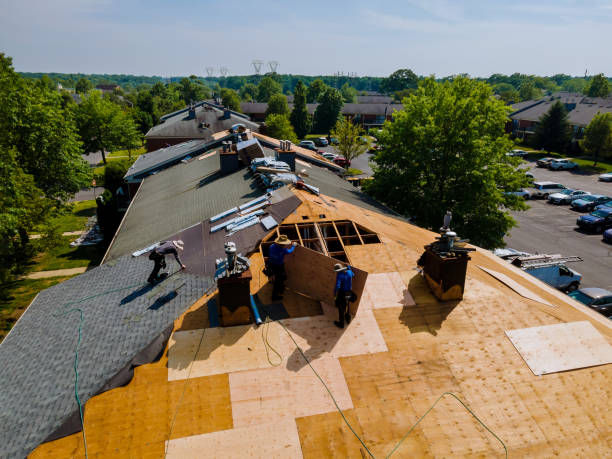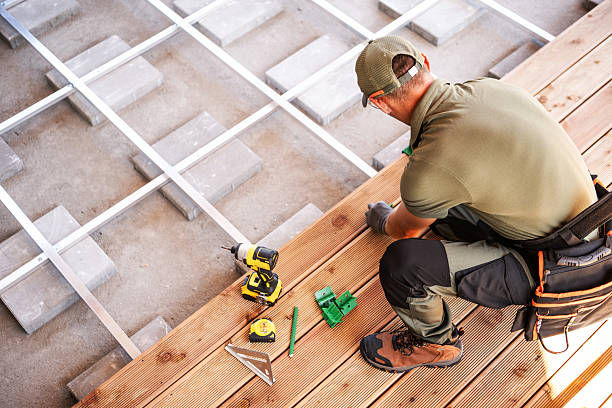How to Work with Roofing Contractors Stress-Free?
- Robert Contraros
- Aug 16
- 3 min read
When you think about replacing or repairing your roof, do you instantly picture loud noises, endless delays, and constant worry? For many homeowners, working with a roofing contractor can feel intimidating. Yet it doesn’t have to be this way. The key to a hassle-free project lies in knowing how to work with roofing contractors effectively from the first call to the final inspection.
Whether you’re facing storm damage or simply upgrading your home’s curb appeal, this guide will walk you through the process of working with Roofing contractors Derry NH in a way that keeps your stress levels low and your satisfaction high.

Understanding the Role of a Roofing Contractor
What Roofing Contractors Actually Do?
A roofing contractor is more than just the person who installs shingles. Their role often includes:
Assessing the condition of your roof
Recommending repairs or replacement
Ensuring compliance with local building codes
Coordinating labor and materials
Managing timelines and safety standards
A professional like Ridge Runner Construction, LLC also provides expert guidance to help you make decisions that protect your home in the long run.
Step-by-Step: How to Work with Roofing Contractors Stress-Free
Step 1: Do Your Homework Before You Hire
Hiring the right contractor is the foundation of a smooth project.
Checklist for Pre-Hiring Research:
Verify licenses and insurance
Read online reviews and testimonials
Ask for references from past clients
Review portfolios or past projects
Check their experience with your type of roof
Step 2: Get a Clear, Written Agreement
Misunderstandings often lead to stress. Always request a written contract that clearly states:
Scope of work
Materials to be used
Project timeline
Warranty details
Payment schedule
Sample Contract Elements
Contract Element | Why It’s Important |
Scope of Work | Avoids misunderstandings |
Material Details | Ensures quality and brand consistency |
Project Timeline | Keeps the project on track |
Warranty Terms | Protects against future issues |
Payment Milestones | Prevents overpaying before completion |
Step 3: Communicate Effectively
Keep the Lines Open
Regular updates help avoid surprises. Establish a preferred communication method—whether that’s daily emails, weekly calls, or in-person check-ins.
Best Practices for Communication:
Agree on a single point of contact
Ask for progress photos if you’re away
Address concerns promptly
Confirm all changes in writing
Step 4: Prepare Your Home for the Project
Roofing work can be disruptive, but preparation minimizes inconvenience.
To-Do List Before the Crew Arrives:
Move vehicles away from the work area
Protect landscaping with tarps
Remove fragile items from attic
Secure pets indoors
Notify neighbors of potential noise
Step 5: Be Present but Not Overbearing
It’s natural to want to oversee the work, but constant hovering can slow progress. Strike a balance by:
Being available for decisions or approvals
Checking in at agreed times
Trusting the professionals to do their job
Step 6: Handle Issues Calmly
Even the best projects can hit a bump. If something goes wrong:
Discuss concerns privately with the contractor
Refer to the contract for guidance
Document issues with photos
Allow reasonable time for resolution
Common Mistakes to Avoid When Working with Roofing Contractors
Skipping references: Always confirm past client satisfaction
Paying the full amount upfront: Stick to milestone payments
Ignoring permits: This can delay or halt your project
Not asking about cleanup: Debris removal should be part of the agreement
Focusing only on price: Cheaper isn’t always better

Roofing Contractor Do’s and Don’ts
Do’s | Don’ts |
Get everything in writing | Assume verbal promises are enough |
Check credentials | Skip checking insurance |
Maintain open communication | Wait until the end to voice concerns |
Prepare your property beforehand | Leave items in harm’s way |
Ask questions about materials | Accept whatever’s offered without info |
FAQs: Working with Roofing Contractors
Q1: How long does a typical roofing project take?
A typical residential roof replacement can take 1–3 days depending on size, materials, and weather conditions.
Q2: Should I be home during the roofing work?
It’s not necessary to be home all day, but being available for questions is helpful.
Q3: How do I know if my contractor is using quality materials?
Ask for brand names, product warranties, and samples before work begins.
Q4: What if bad weather delays my project?
Most contracts include a clause for weather delays. A good contractor will reschedule quickly and keep you informed.
Q5: How do I protect my landscaping during the project?
Work with your contractor to place tarps, plywood, or protective barriers before work starts.
Conclusion:
Working with reliable roofing contractors doesn’t have to be overwhelming. With proper research, clear communication, and a trustworthy partner like Ridge Runner Construction, LLC, you can enjoy a smooth, stress-free experience from start to finish.
Remember, the goal isn’t just to get a new roof, it’s to protect your home for years to come without the headaches. If you’re ready to start your project with reliable Roofing contractors Derry NH, take the first step today and watch your roofing worries disappear.

Comments